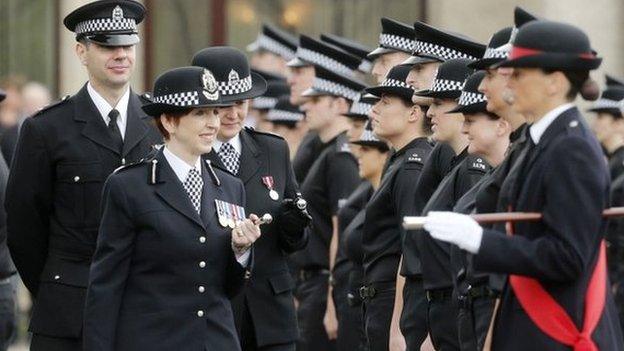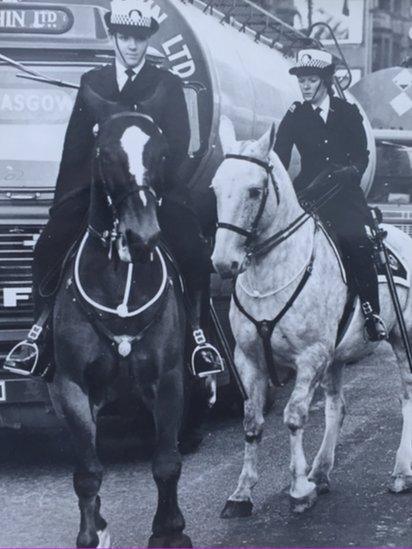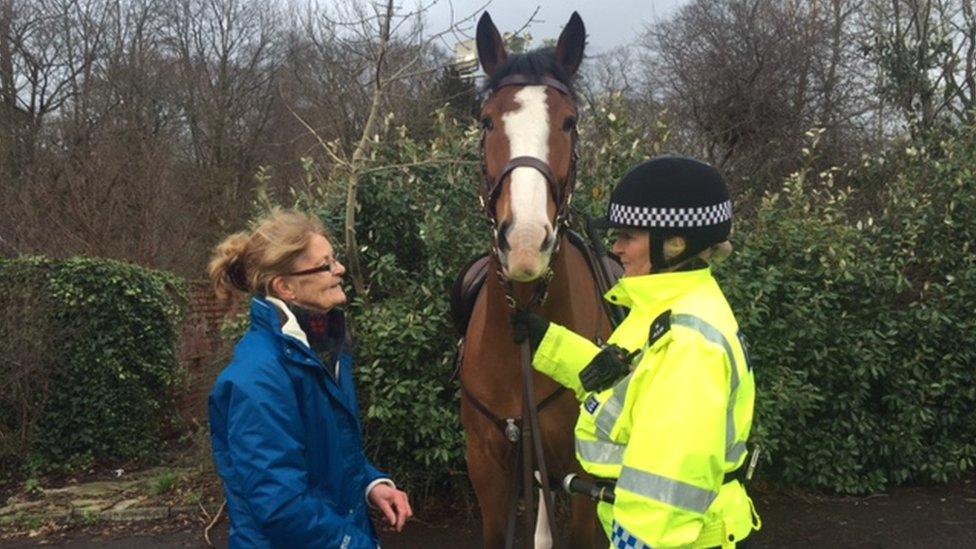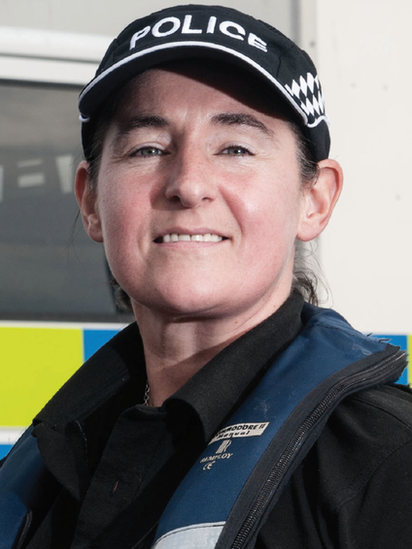100 years of women in Scottish policing
- Published

Deputy Chief Constable Rose Fitzpatrick overseen a passing-out parade for new recruits last summer where almost 40% of the new officers were women
They were once issued with smaller batons than their male counterparts so they could fit in their police-issue handbags. 2015 was the centenary of women first being admitted to the police force.
We caught up with some of Police Scotland's female officers, past and present, to find out how times have changed.

It was 1915 when the first policewoman was admitted to a Scottish force - Emily Miller joined City of Glasgow Police.
Female officers were recruited to take the place of men called up to fight in World War One.
Since then, gradual progress has been - and is being - made towards equality.
The number of female police officers in Scotland is sitting at about 29% - 5,150 female officers of the 17,500 serving police officers.
Still a way to go before the police force - and much of the rest of society - can claim gender equality, but progress, certainly.
In 2012, Rose Fitzpatrick was appointed as first female Deputy Chief Constable of Police Scotland.
When she joined the police - in 1987 - women were still paired with male officers on patrol the streets.
"There is no rank or role in Scotland which women cannot now attain, and, speaking on behalf of my colleagues in Police Scotland, I hope we are seen as a modern, fair and diverse organisation where women can thrive and develop themselves," she said.
The proportion of women in superintending ranks and above has leapt from just 5% in 2003 to 19% at the end of October 2015.
And the roles played by women within the police service have become more varied.

Eleanor Dempster and Avril Dempsey on their first day as the first mounted policewomen
It was 1974 when Eleanor Dempster and Avril Dempsey were recruited to City of Glasgow Police's mounted branch - the first women to do so.
Now, the department is female-dominated.
Eleanor Dempster, now 70, said: "I was one of the first ladies to join the mounted branch when the sex equality act was introduced. I joined the police in 1967, and joined the mounted branch about 1974 - it was difficult. We were moving into a male dominated area and they had their own set way of doing things.
"Although we were trained, we couldn't go out on patrol at first because the clothing department couldn't make us breeches."
She said the public were "amazed" to see a woman on a police horse. They would stop her in the street to get a picture of her with the horse because it was something that they had never seen before.
"I think the public found Avril and I were more approachable. I suppose we also got away with a wee bit more than the men would - the public would sometimes do things for us happily that they might not have done for a man.
"Eventually, the men in the mounted unit would come to Avril and I for advice on the horses, because they accepted that we had a lot of experience with horses outside of the mounted unit, too" she said.

Eleanor Dempster, left, caught up with Kirsteen Watson, a policewoman who works in the mounted branch, and her horse Lockerbie
PC Karen Gordon was the first woman to serve in the Marine and Dive Unit.
She she told the Daily Record , externalthat she had wanted to be a police diver from the moment she signed up.
She was 27 years old and had never dived before when Central Scotland Police offered her the job in 1996 - after being turned down six years in a row.

PC Karen Gordon is the first female officer in the Marine and Dive Unit. She still serves with the unit today
The job, which involves searching for evidence and preserving a crime scene underwater, often has to be carried out with very poor visibility in dangerous and uncomfortable situations.
But, she told the paper, she loves her job. "I see it as bringing people back to their families", she said.
"We know when we're looking for a person we're looking for a body and for me it's about getting them home to their loved ones. It's always hard when we can't find missing people.
"I'm proud of my job and I know we provide a valuable service to the public. I'd love to see more women come into my unit."
Seven policewomen have died in the line of duty: WPC Isabella Harris, PC Melanie Igoe, PC Jacqueline Haswell, PC Karen Balfour, PC Kirsty Allan, DC Diane Donald and PC Kirsty Nelis.